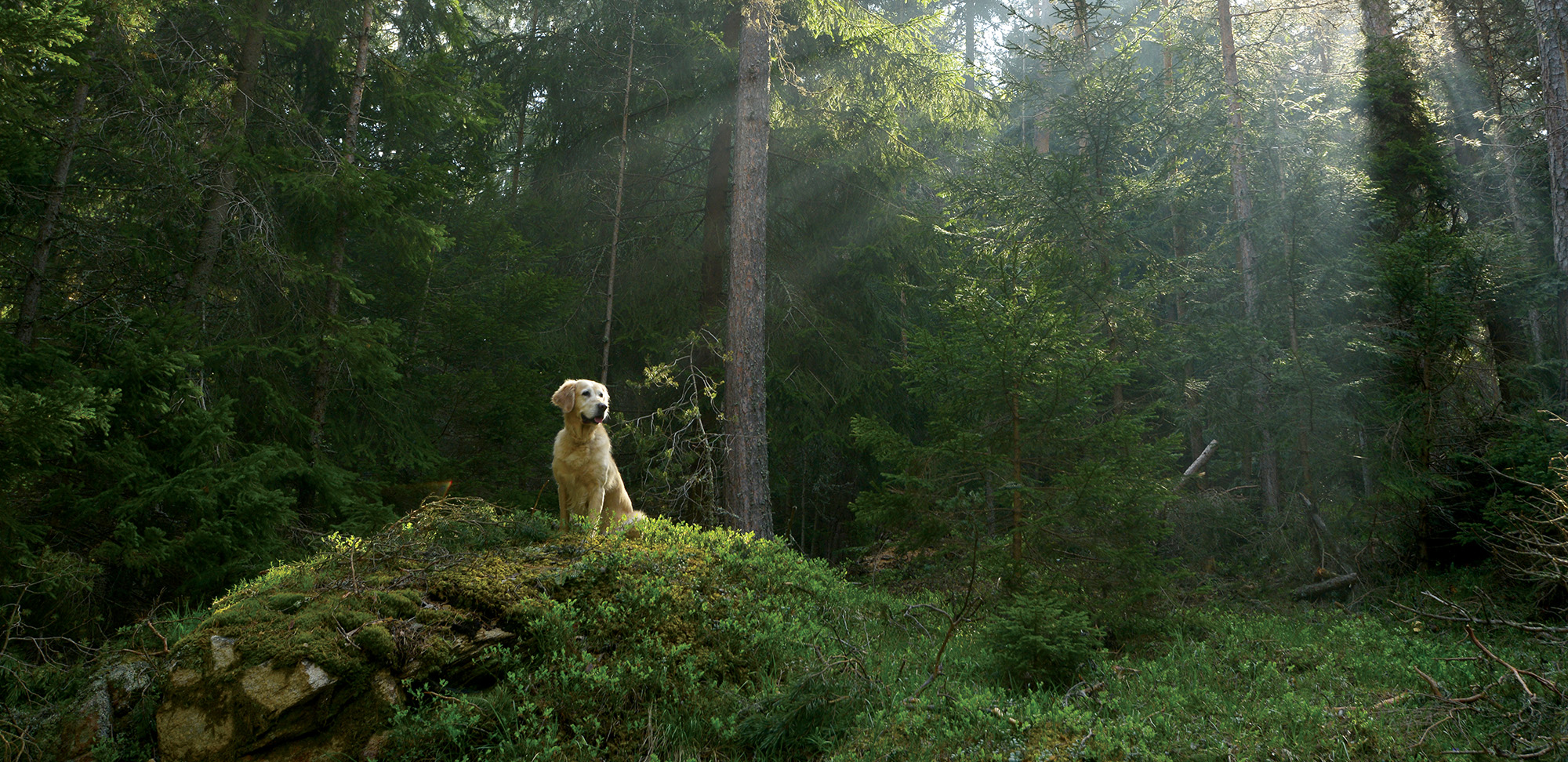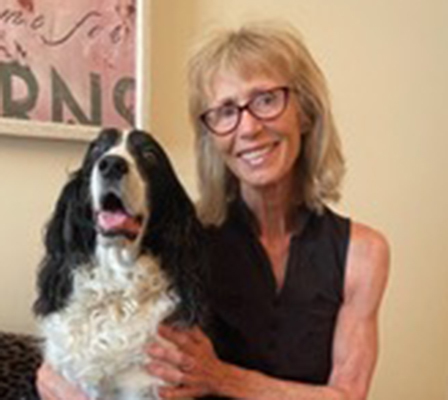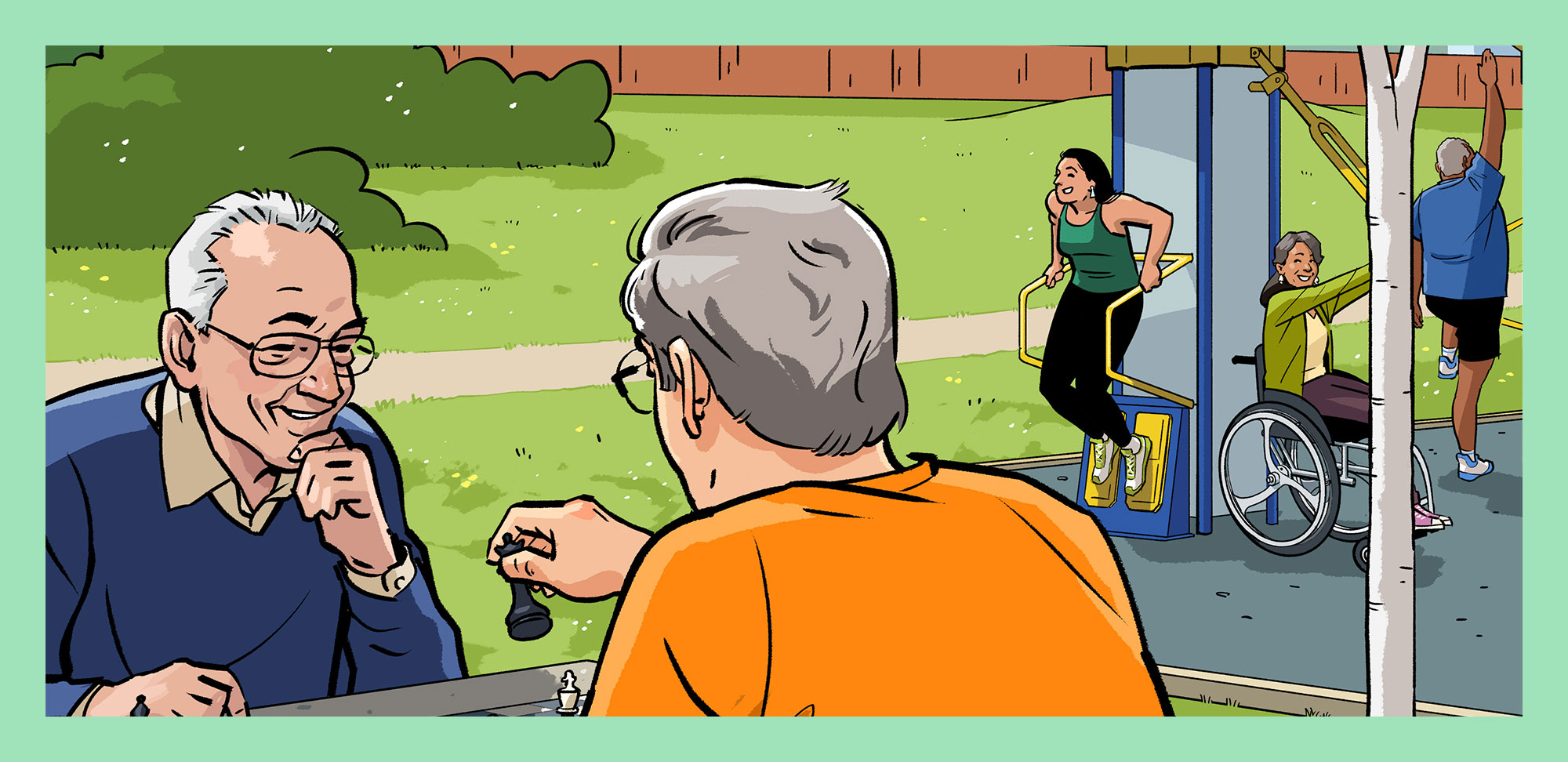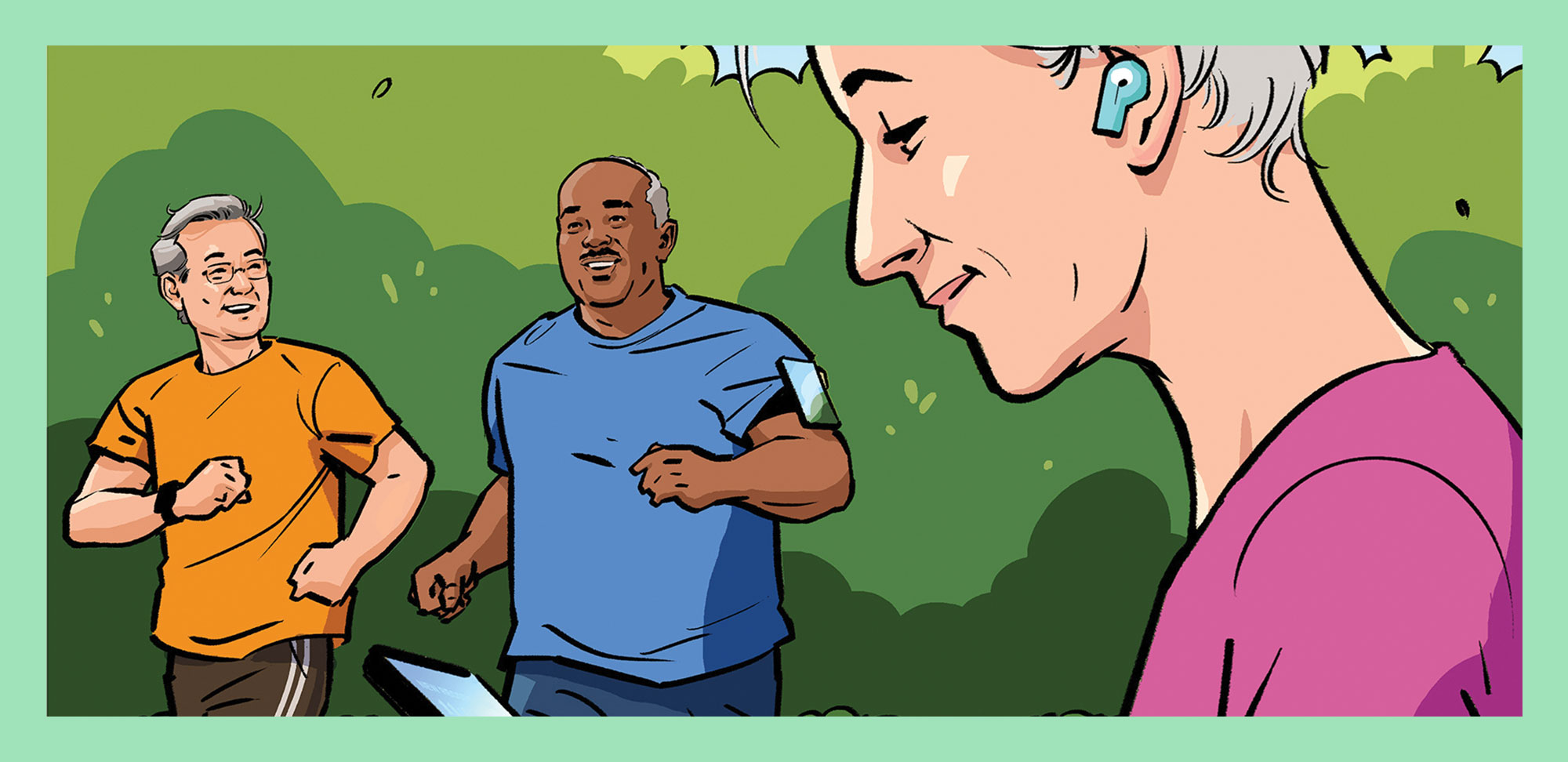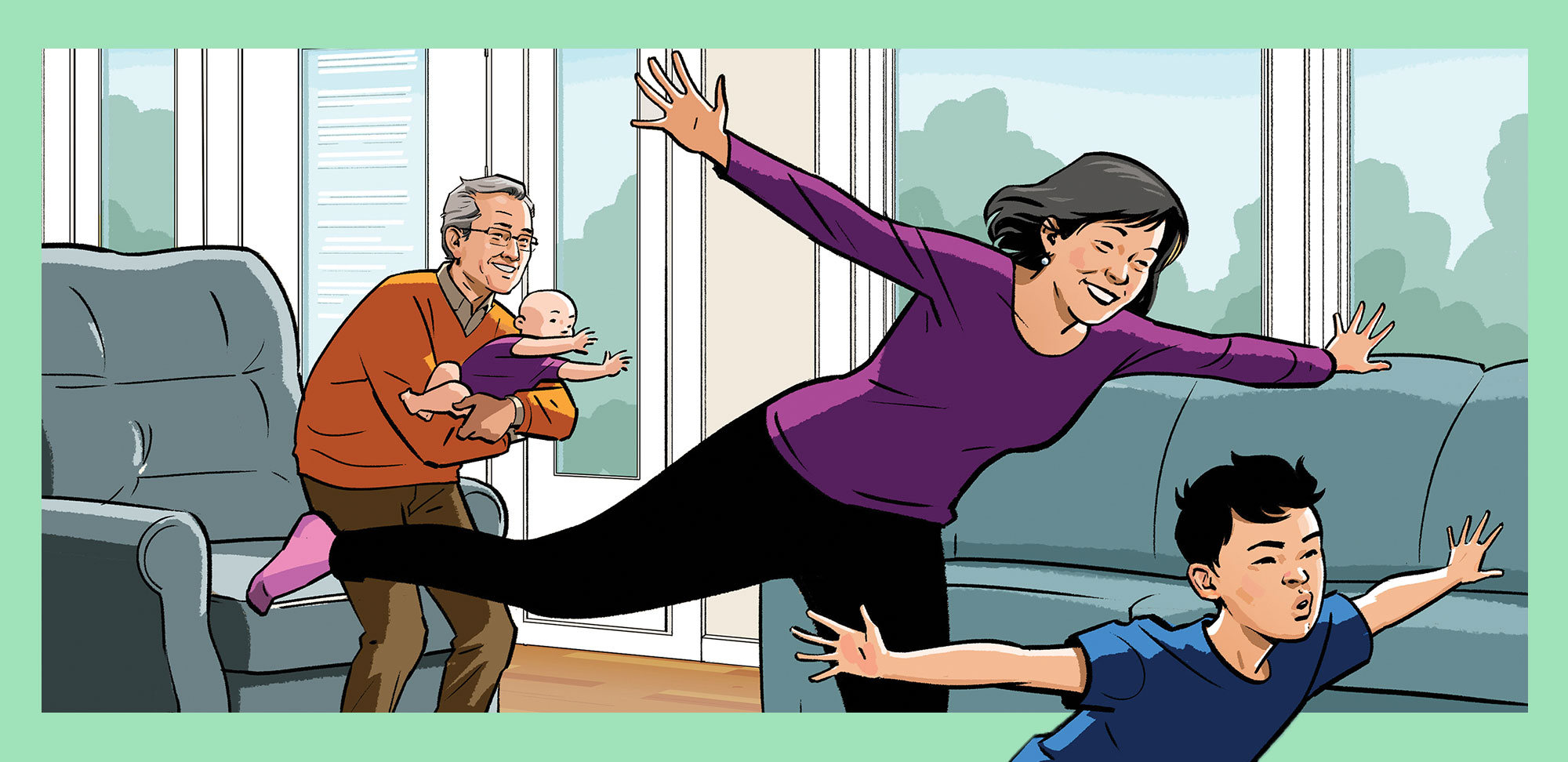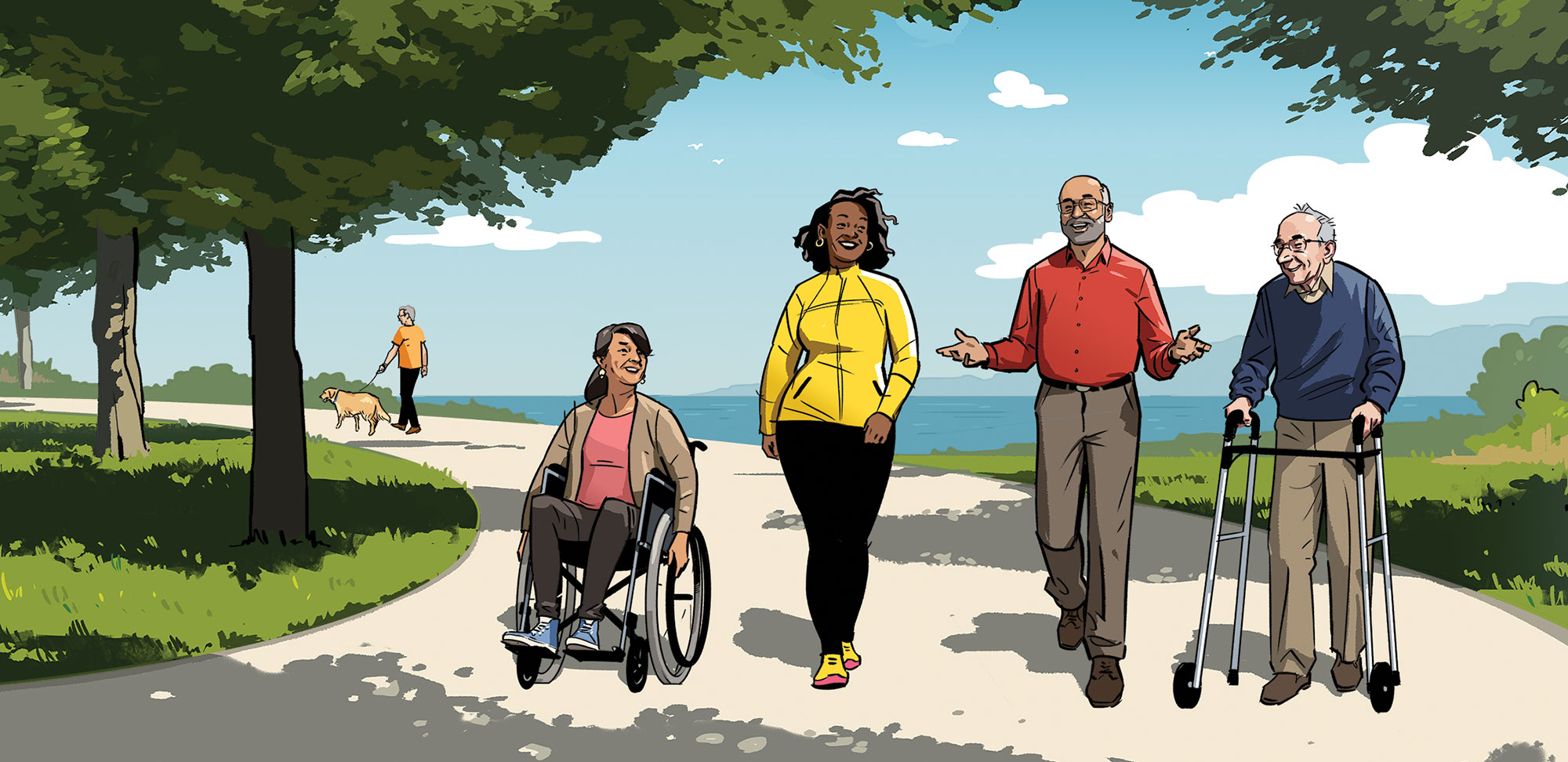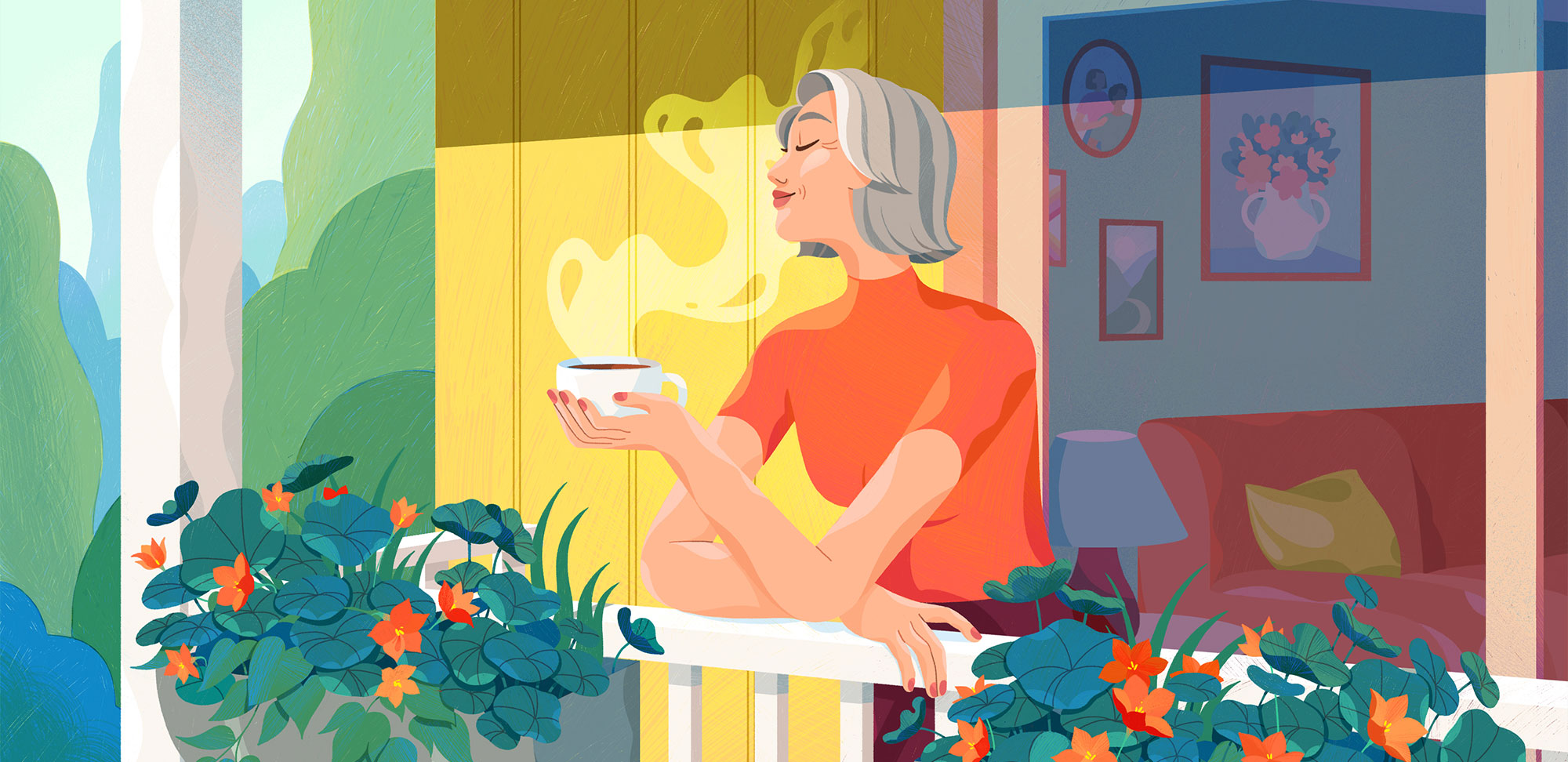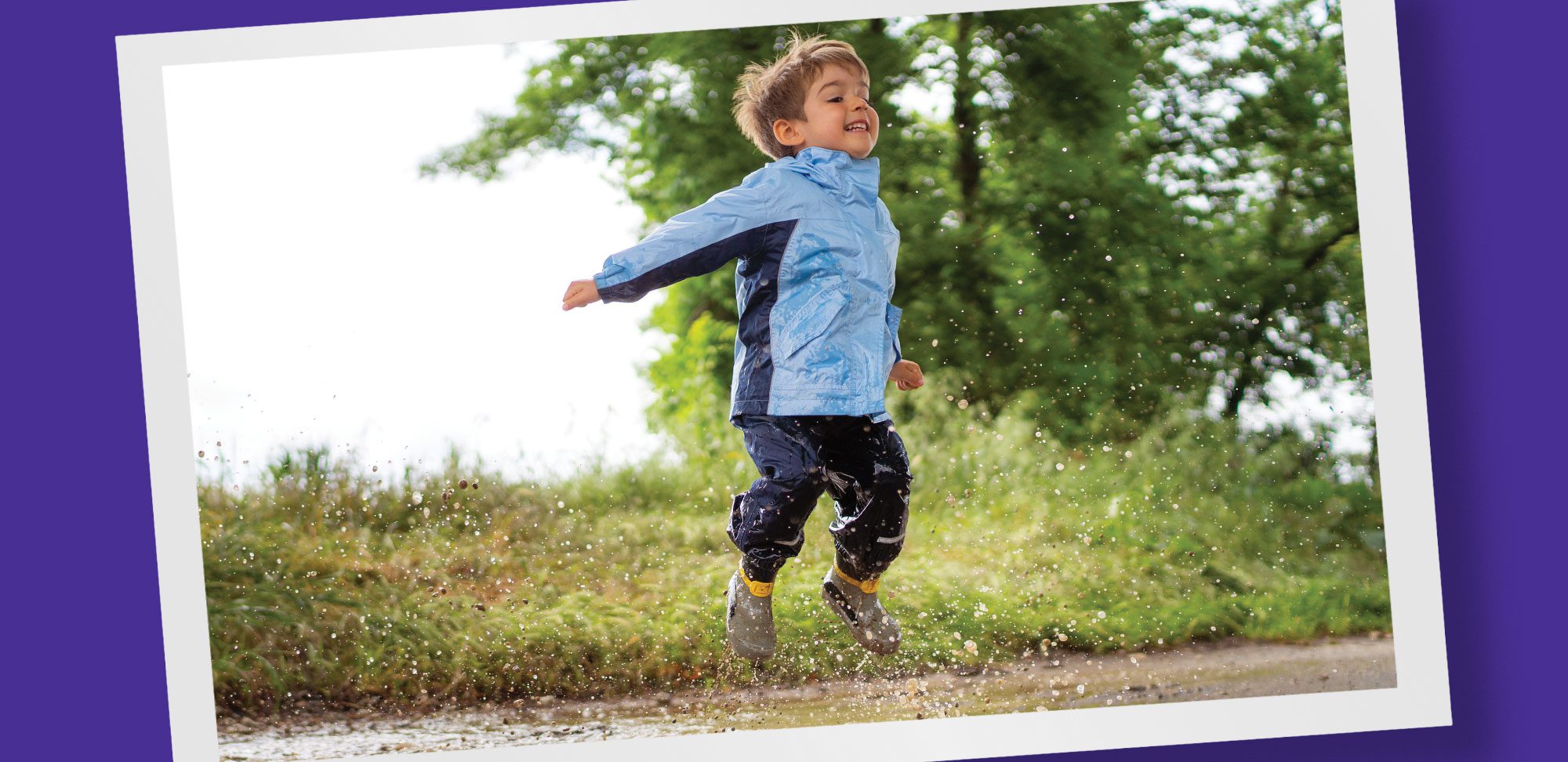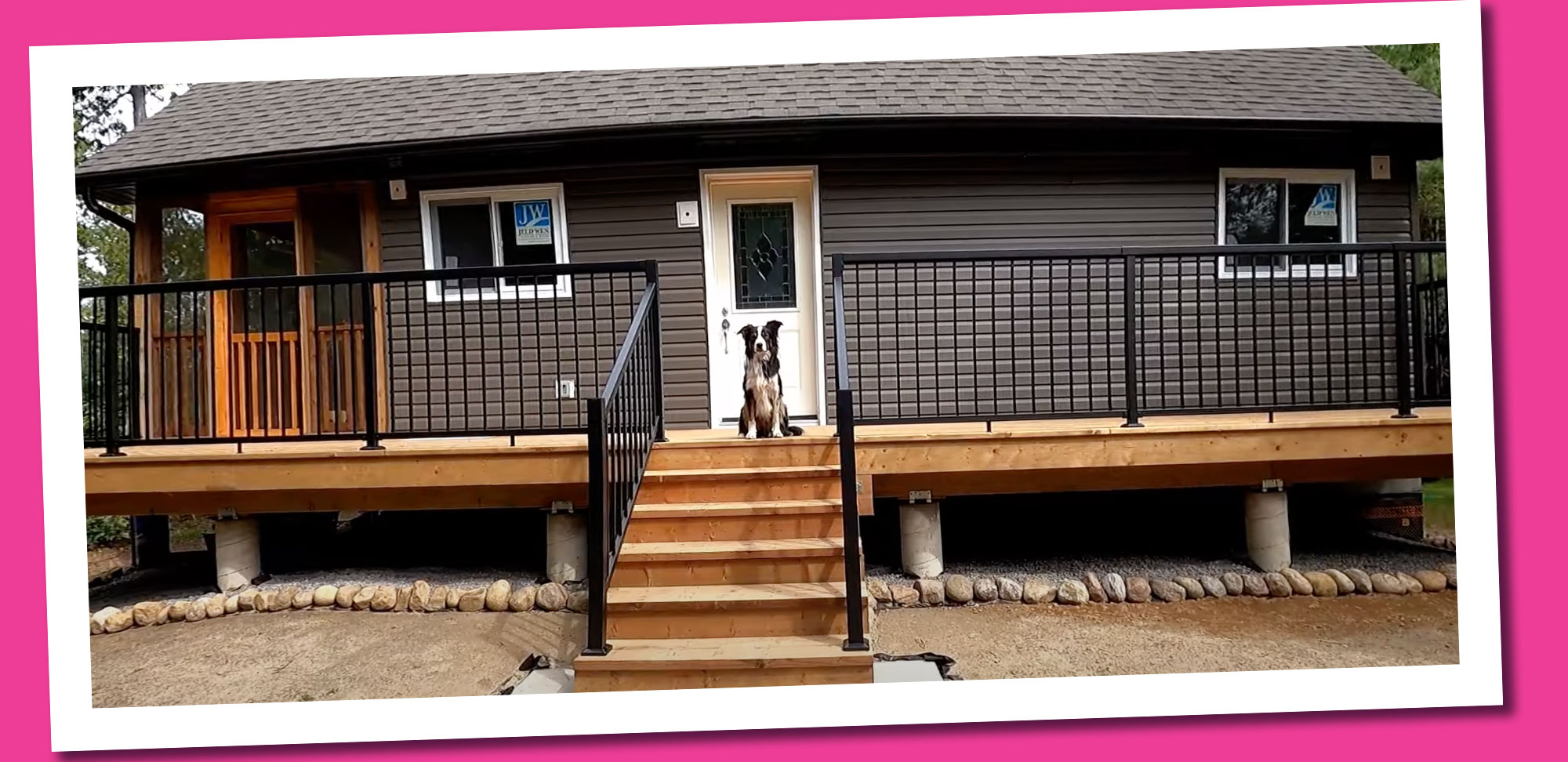With five years to go before retirement, Linda Kittmer found her world upended when she slipped running down wet stairs.
It was 2010, and Kittmer (District 39 Peel) was 49. She had been a teacher for 24 years, first in an elementary school and then in special education and ESL. A wife and mother too, Kittmer was happy doing her job, especially when she was working with children who faced learning challenges.
When she fell, the back of her head hit the stairs hard, causing a severe concussion and a traumatic brain injury. She faced a lengthy recovery and “went from being someone who read constantly for work and leisure to having to reteach myself to do a lot of things,” she says. “My brain wasn’t working as it once had, and even now, 11 years later, some tasks are more of a challenge.”
After several unsuccessful attempts to teach again, Kittmer took early retirement. “I literally had to grieve who I once was so that I could finally move past it,” she says. “But I also believed that I still had a lot to give, and I had to find something I could do that would help others.”
It may well have been a gentle nuzzle from the family’s senior golden retriever that persuaded her to become a foster mom for guide dog puppies. She’d considered volunteering this way even before the accident, but now the time was right. “I know several people who, if it weren’t for their guide dogs, would not be able to live on their own. It’s only because they have a working dog that they can have an apartment and have that independence,” she says.
As a foster mom for the Lions Foundation of Canada Dog Guides program, Kittmer raises puppies from about seven weeks of age, providing basic training, such as general commands and socialization, while exposing them to as many experiences as possible. The goal is to return a polite, well-behaved dog who has good recall.
The Lions Foundation gets most of the puppies through its breeding program, which focuses on Labrador retrievers, standard poodles and, for the last several years, golden retrievers crossed with Labs. When the dogs are about one year old, they’re ready for formal training by professionals, who teach them the specific skills they need to participate in service-dog programs, including Canine Vision Canada, Autism Assistance Dog Guides and Seizure Response Dog Guides.
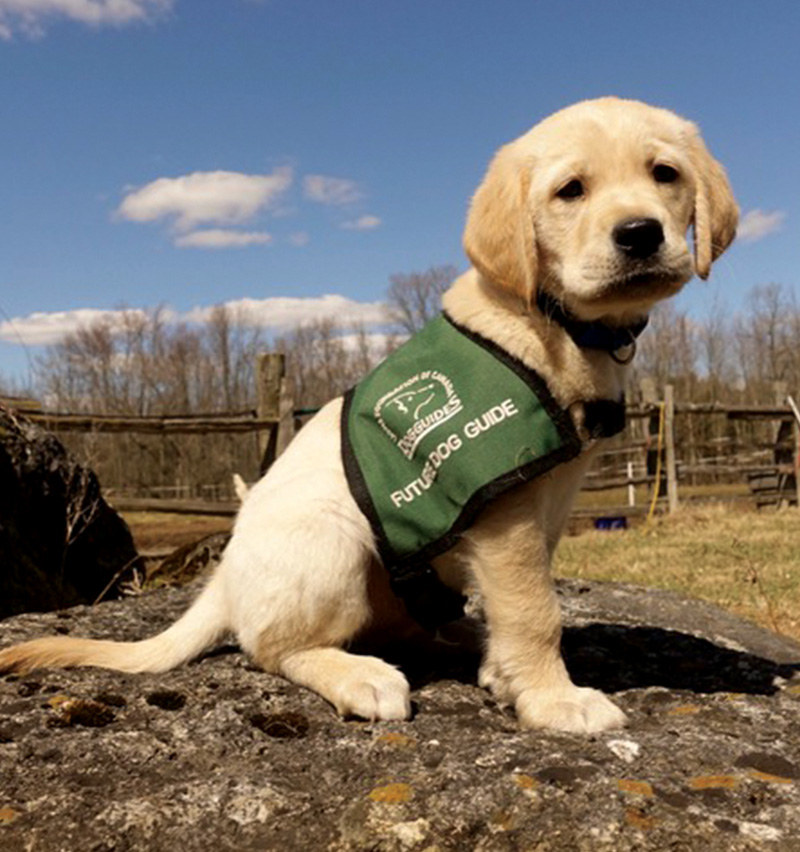
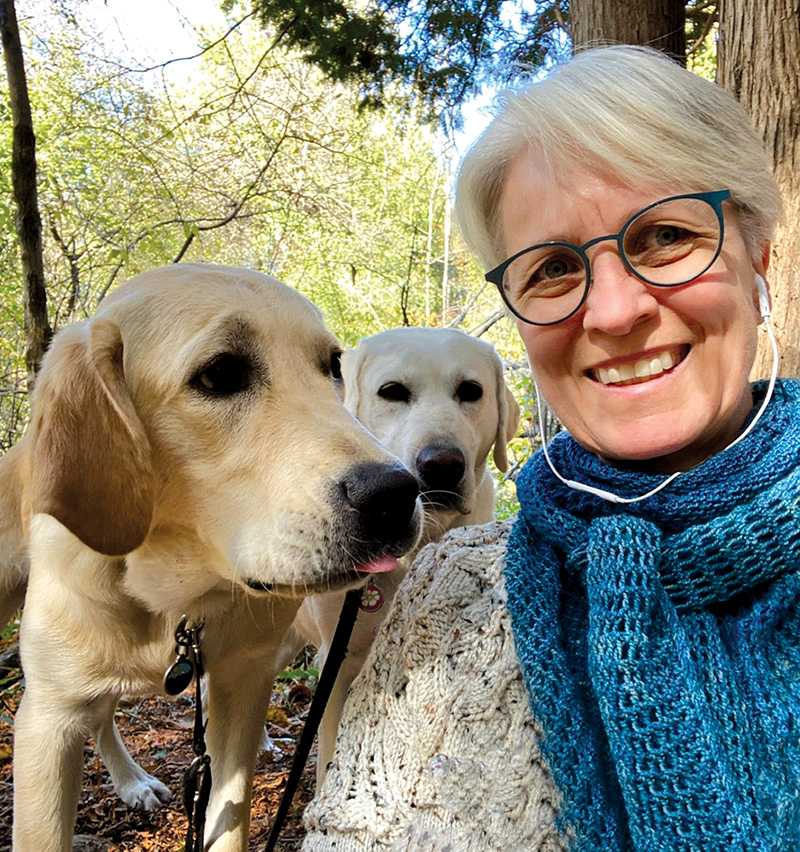
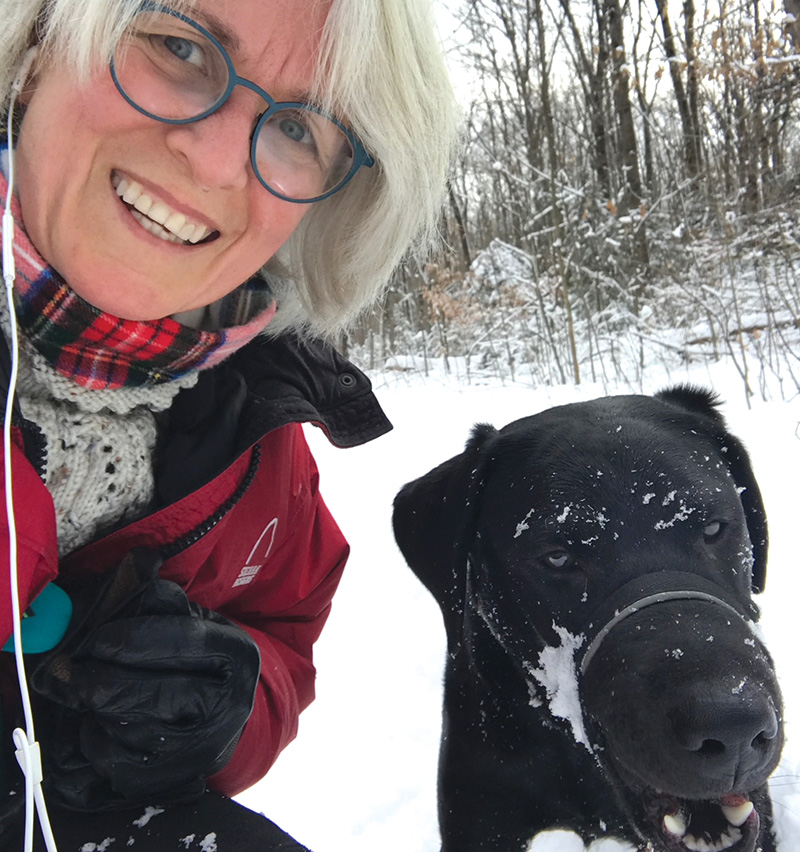
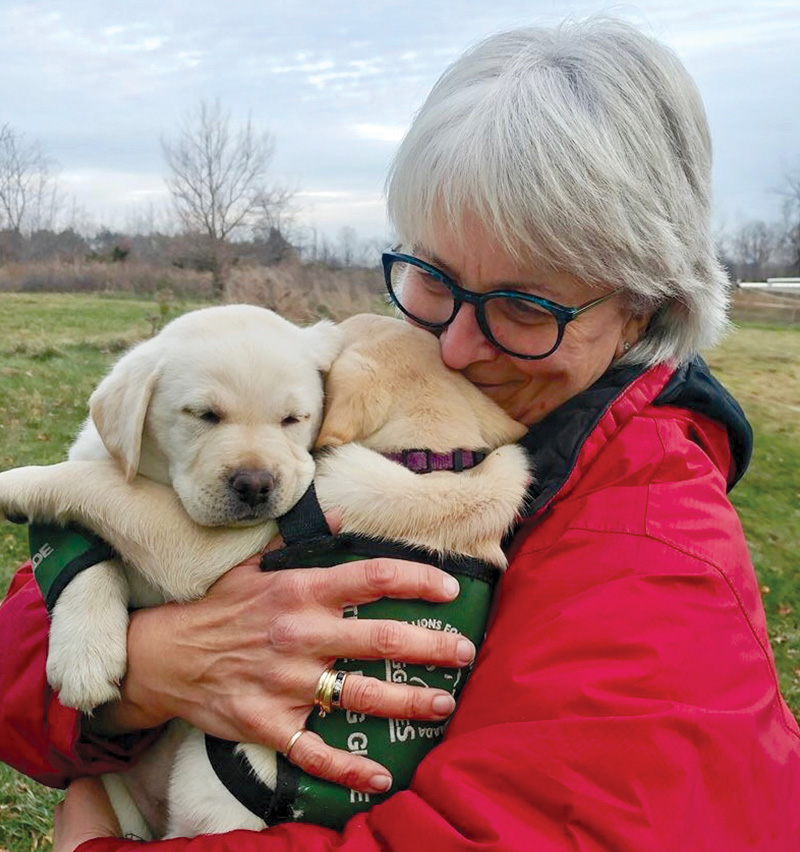

To date, Kittmer has fostered nine puppies: three have become Hearing Dog Guides (one took early retirement and Kittmer’s family adopted her); one is a Service Dog Guide for a woman with mobility issues; one works as a Canine Vision Dog Guide; one is in the breeding program; one is in formal training at Dog Guides University; and the other two changed careers — one was adopted by a family with a child, and Kittmer adopted one with mild hip dysplasia.
Kittmer has become part of the fostering community and has participated (pre-COVID) in many fundraising initiatives and events. She has also puppy-sat more than 50 future guide dog puppies for friends who also foster — sometimes for a few days, sometimes for up to six weeks. “From a purely selfish perspective, fostering means I get puppies all the time,” she says. But what Kittmer hadn’t anticipated was how the puppies would support her.
Kittmer was diagnosed with post-traumatic stress disorder as a result of the fall and earlier personal events. She had great difficulty being around people — just going into a grocery store could be a trigger. “Fostering forced me out into the world, because puppies need to be socialized and exposed to grocery stores, public transit, etc. When I was with the dogs, I found I was not feeling as stressed or having anxiety attacks as often. Focusing on them was helping me,” she says.
While Kittmer’s life today may not be the one she imagined for herself before the accident, “I have a wonderfully full life: I do daily 10-kilometre hikes with the dogs, I have hobbies I enjoy, including quilting and fibre arts, and we love to travel [though that’s on hold for now].” Bessie and Packer, two of the nine puppies she’s fostered, are now family pets because health issues disqualified them from being guide dogs.
Before COVID, clients who received a service dog would train with their canines at a facility in Oakville, Ont., for up to four weeks. Kittmer and other foster parents were always invited to graduation ceremonies, and everyone had the opportunity to meet. “The unconditional love of all the puppies coupled with the pride you feel when you see them eventually matched with a client — working to provide that person with safety and independence — well, it is all so incredibly rewarding,” she says.
And in case you’re wondering, yes, it is very emotional for Kittmer to let the grown-up puppies go. “But at the same time,” she adds, “you know they’re superheroes that are going on to change someone else’s life — not just your own.”
How to make retirement work for you
Fear, anxiety and excitement are all common emotions that crop up when people retire, says Mandy Wintink, a life coach and CEO at the Centre for Applied Neuroscience (knowyourbrain.ca). There are so many changes and, “while financial planning is key, it’s important to think about how you will remain socially, physically and mentally engaged too,” she says.
“I encourage my clients to take a deep dive and explore what they want to do when they officially stop working,” says Jennifer Rovet, a certified retirement planning coach at Retire Ready Canada (retirereadycanada.com).Here are five ways to plan for your best years yet.
ROUTINE: When you stop working, your day shifts completely. You don’t have to be anywhere at 8:30 a.m., and there are no pressing work concerns. Retirement coaches suggest enjoying that freedom for a little while: Don’t worry about setting the alarm or having a scheduled day. But, at some point, you will want some structure — and motivation — and that’s when you start adding tasks, physical activities, hobbies and commitments back to your days.
IDENTITY: Many people define themselves by their careers. When they retire, that identity disappears, says Rovet. Think about what you want to do in retirement and how you will reinvent yourself. “You can choose which parts of your personality and life you want to keep and what you want to let go of,” she advises.
PEOPLE: The workplace often forms a big part of a person’s social life, and it’s common to feel a bit lost when you retire, says Wintink. Keep in touch with work colleagues but look for ways to create new social networks. Join a tennis club, get involved at the local community centre, take a course or simply plan a weekly coffee date with friends or family.
PASSION: Many people are passionate about their jobs. When you retire, you have an opportunity to bring that passion to a whole new pursuit. Rovet suggests creating a “curiosity list” and exploring the item that makes your heart skip a beat. Another strategy: Think about what you liked to do as a child — and do it again. Did you love music? Take up the guitar. Were you fascinated by horses? Consider riding lessons. Did you keep a diary? Write stories about your family. If you get excited thinking about it, start figuring out how you can make it happen.
PURPOSE: Some retired people miss the sense of purpose their job provided. Consider volunteering or giving back in some way. Consider charities or organizations that reflect your values and then think about how and what you would like to volunteer. Is it time? Expertise? Energy? Websites like charityvillage.com post a wide range of available volunteer positions. Finding purpose might even https://charityvillage.com/ be as simple as becoming more involved in your children’s or grandchildren’s lives.
